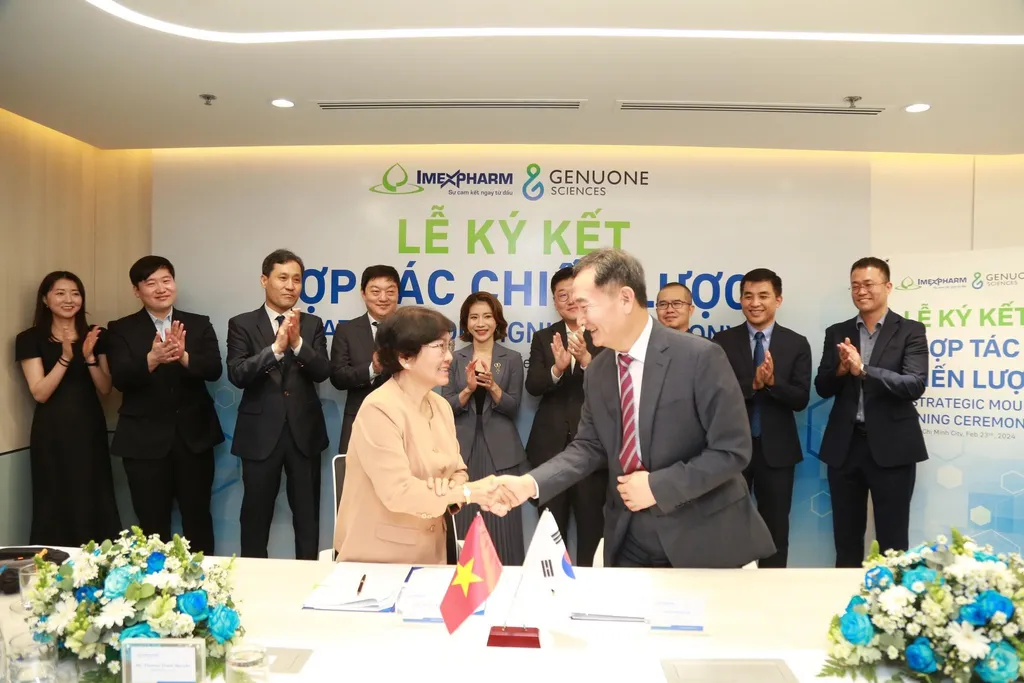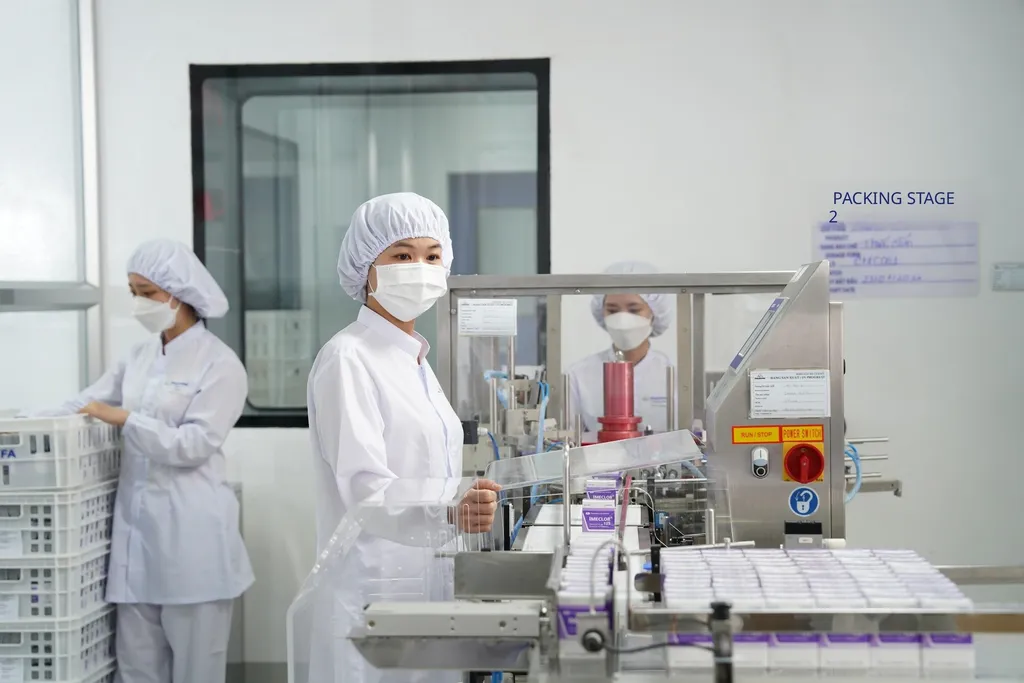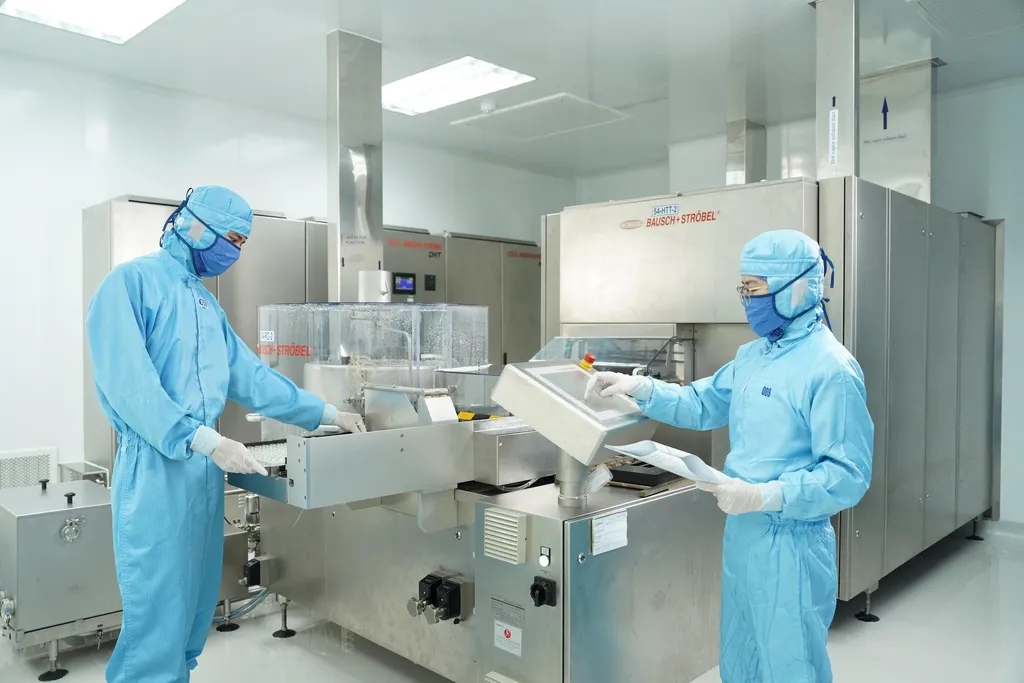 advertisement
advertisement

 |
| The strategic cooperation between Imexpharm and Genuone marks an important milestone for Imexpharm to affirm its position in producing high-quality specialty drugs at reasonable costs for Vietnamese people. Photo courtesy of Imexpharm. |
Breakthrough opportunity for Vietnam’s pharmaceutical industry
The latest statistics from the General Department of Customs show that in 2023, Vietnam spent nearly 6.9 billion USD to import pharmaceuticals from France, the US, Germany, India and Italy, an increase of nearly two times compared to 2022 (3.5 billion USD), of which the pharmaceutical products still account for a large proportion.
The total import turnover of pharmaceutical products has continued to dominate and has increased strongly over the years. Vietnam’s pharmaceutical imports reached about 1.6 billion USD in 2011, 2.4 billion USD in 2015, and 3.5 billion USD in 2020.
This reflects the weak competitiveness and development of Vietnamese pharmaceutical enterprises compared to their foreign rivals. Specifically, the production capability of Vietnam’s pharmaceutical industry is estimated to meet only about 53% of the domestic demand, while the rest still depends on imported products.
A report by FPT Research in 2022 showed that foreign drugs account for about 50% in value and 25% in quantity. Imported drugs also dominate the hospital channel (ETC), with a bid value rate of up to 77%.
 |
| Vietnam’s pharmaceutical industry is striving to realise the goals of increasing production capability to meet domestic demand, increasing exports and deeply integrating into the global supply chain. Photo courtesy of Imexpharm |
In addition, according to a report by KPMG, in 2021, innovative drugs accounted for only about 19% of the total revenue of the Vietnamese pharmaceutical industry, which is quite low compared to other countries in Southeast Asia such as Thailand (32.1%) and Singapore (53.3%). The low market share of production shows that the Vietnamese people’s access to innovative drugs is still very limited.
However, Vietnam is still a pharmaceutical market with great potential for development in the future. IQVIA believes that Vietnam belongs to the group of Pharmerging Markets - a group of 17 countries with the highest growth rate of the pharmaceutical industry globally thanks to many favorable conditions for development such as a large population - over 100 million people, which is rapidly aging, and the living standards and health care awareness of the people are gradually improving.
Notably, the The National Strategy for Vietnam's Pharmaceutical Industry Development by 2030 with a vision toward 2045 was approved by the Government on October 9, 2023, opening up many opportunities for the domestic pharmaceutical industry to grow and develop, with the goal of reducing dependence on imports and focusing on modernisation so that the Vietnamese pharmaceutical industry can be on par with other countries in the world.
Proactively responding to challenges
In the strategy, the Vietnamese Government has set the goals that by 2030, domestically produced drugs will meet about 80% of the demand and account for 70% of the market value, and Vietnam will become a regional production hub for high-value pharmaceuticals. In order to realize the goals, domestic firms are focusing on improving business management skills, continuously expanding the market share, developing distribution networks; focusing on upgrading and building production lines that meet international standards.
 |
| Upgrading and building international standard production facilities such as EU-GMP helps pharmaceutical enterprises improve drug quality and enhance their competitive advantage on the "home field". Photo courtesy of Imexpharm |
Statistics show that Vietnam currently has more than 200 GMP-qualified factories, with 18 EU-GMP factories and 4 PICs-GMP factories. In which, Imexpharm Pharmaceutical Joint Stock Company (IMP) stands out when it owns the largest network of EU-GMP standard production lines in the country, with 3 factory clusters and 11 EU-GMP standard production lines. This is also the first pharmaceutical producer to achieve GMP-ASEAN certification in Vietnam.
Recently, Imexpharm boldly joined hands with Korean pharmaceutical group Genuone Sciences Inc., to promote the transfer of core technologies, aiming to produce high-quality specialty drugs at more affordable costs. The signing of the strategic cooperation agreement between Imexpharm and Genuone has been highly appreciated by experts in the context of Vietnam actively attracting investment in drug production through technology transfer activities from foreign enterprises for innovative drugs and original drugs.
"Through this strategic cooperation, we are moving towards producing both generic and advanced drugs, not only increasing the value of products and enterprises but also bringing about positive changes in healthcare for the community," Imexpharm's General Director - People's Physician, Pharmacist Tran Thi Dao shared.
It can be seen that Imexpharm and many Vietnamese pharmaceutical enterprises are actively building strategies, responding to challenges to ensure production and business activities, meeting domestic market demand, affirming their position in the world market; and also continuing to accompany and realize the common goals of the Vietnamese pharmaceutical industry.




